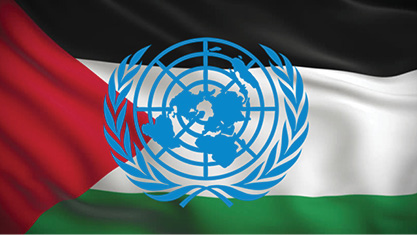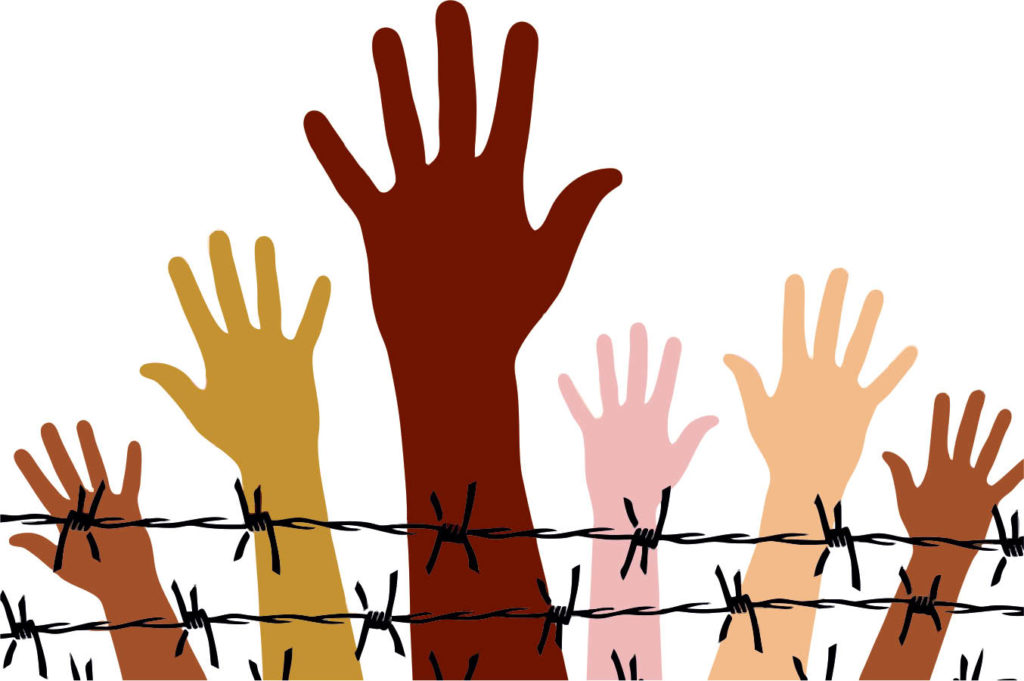The State of Palestine was recognized as a non-member observer state at the United Nations (UN) on November 29, 2012. Many considered this step a milestone, as it allowed Palestine to accede to a series of international instruments. Since then, the State of Palestine has joined over a hundred international treaties, concerning issues that range from international human rights and humanitarian law to international criminal law, and numerous conventions pertaining to diplomacy, international relations, trade, and corruption, among others. Since April 1, 2014, and up to date, the State of Palestine has acceded without reservations to seven of the nine core international human rights treaties and to four of their optional protocols.
The ratification of human rights treaties by the State of Palestine does not alter, however, the reality of Israel’s prolonged military occupation of the West Bank, including East Jerusalem, and the Gaza Strip, in place since 1967, nor has it prevented Israel from exercising effective control over the Palestinian people in the occupied Palestinian territory (oPt). In fact, international human rights and humanitarian law places on Israel, as occupying power, the obligation to respect, protect, and fulfil the inalienable rights of the Palestinian people, in particular the right to self-determination and to permanent sovereignty over natural wealth and resources, in the best interest of the Palestinian people.
At the same time, the context of Israel’s prolonged occupation does not absolve the State of Palestine of its own obligation, under the same treaties, to uphold the human rights of all Palestinians within its territory and subject to its jurisdiction.

The core international human rights instruments to which the State of Palestine has acceded are of substantial value in improving the lives of Palestinians, as they enshrine human rights and fundamental freedoms that are universal, inalienable, interdependent, interrelated, and non-divisible. These include the full spectrum of civil, political, economic, social, and cultural rights that derive from the inherent dignity of the human person as well as from international principles and standards. Together, they aim at the protection and promotion of all human rights. They are applicable in times of peace as well as in situations of armed conflict and foreign occupation. Even when a state’s accession to international treaties is made voluntarily, legal obligations arise under the instruments to which the state accedes. Whether positive or negative in nature, such obligations provide both a standard and the stipulation that the state must respect, protect, and fulfill human rights and fundamental freedoms.
As of January 2020, the State of Palestine has acceded without reservations to the following core international huma-rights law instruments: the International Covenant on Civil and Political Rights (ICCPR), the International Covenant on Economic, Social and Cultural Rights (ICESCR), the International Convention on the Elimination of All Forms of Racial Discrimination (ICERD), the Convention on the Elimination of All Forms of Discrimination against Women (CEDAW), the Convention against Torture and Other Cruel, Inhuman or Degrading Treatment or Punishment (CAT), the Convention on the Rights of the Child (CRC), and the Convention on the Rights of Persons with Disabilities (CRPD).
The legal obligations imposed on the State of Palestine with its accession to the core human rights treaties are applicable to all the state’s governmental branches and other public and governmental authorities. Furthermore, while obligations may vary between one convention and another, all human rights treaties require the state party to refrain in its laws, policies, and practices from directly or indirectly violating human rights. This includes the prohibition of imposing arbitrary restrictions that would impair the enjoyment of fundamental rights and undermine the object and purpose of the treaty. Alternatively, the State of Palestine shall take all possible measures to achieve the full realization of these rights for all individuals within its territory and subject to its jurisdiction, including in legislative, judicial, administrative, educational, and other matters.

The state must also raise awareness about the content and provisions of the treaties to which it has acceded, not only amongst public officials and state agents but also amongst the population at large, to ensure that individuals are adequately informed about the individual and collective rights to which they are entitled. These rights include the right to self-determination, the right to a life of dignity, the right to the highest attainable standard of health, the rights to freedom of opinion and expression, the right of peaceful assembly and of association, the right to education, the right to work, as well as the right to participate in political life and in decision making.
Moreover, the state must uphold the principles of equality and non-discrimination; the prohibition of torture and other cruel, inhumane, or degrading treatment or punishment; the right to a fair trial; the protection from violence; and the right of victims of human rights abuses to reparations that shall be determined by competent, independent, judicial, administrative, and legislative authorities. The cessation of ongoing human rights abuses and the non-repetition of such violations are considered essential elements of the right to an effective remedy. Furthermore, the state must also provide information on existing obstacles to the effectiveness of existing remedies.
The State of Palestine’s ratification of core human rights treaties is an important step towards fulfilling the rights of all Palestinians throughout the oPt. However, the real test of effectiveness is not measured in form, but in the realization and enjoyment of individuals’ rights in practice as well as by the overall awareness amongst the general public of their fundamental rights.
There are a number of clear obstacles standing in the way of Palestinians enjoying their rights in practice. The first and most obvious is the prolonged Israeli military occupation and the occupying power’s widespread and systematic human rights violations committed against the Palestinian people. The second is the continued decline of the human rights situation internally – even since the State of Palestine’s accession to core human rights treaties in 2014. This deterioration is the result of a number of factors, including mainly the continued Palestinian political division, since 2007; the lack of unity between the West Bank and the Gaza Strip on various levels; the ongoing violation of Palestinian constitutional principles reflected in the rule of law, the separation of powers, and the independence of the judiciary; as well as the prolonged absence of the Palestinian Legislative Council (PLC), since 2007, and its unconstitutional dissolution by a Supreme Constitutional Court decision in 2017. The ongoing decline in the Palestinian political system has resulted in a monopoly of power and in the unconstitutional hegemony of the executive authority and its apparatus which continue to unduly interfere in state powers. Another important factor leading to the deterioration of the human rights situation is the absence of regular elections, both presidential and legislative, throughout the oPt, including in occupied East Jerusalem, and in the Gaza Strip. The absence of elections has hindered the decision-making processes within the State of Palestine and resulted in a lack of community participation in public policies and decision-making, accompanied by a lack of accountability and of effective remedies for victims of human rights violations.

These obstacles undermine the fulfilment of human rights and per se violate the amended Palestinian Basic Law of 2003 as well as Palestinian national legislations, impeding the implementation of core human rights treaties in practice. Moreover, and despite the state’s accession to these treaties without reservations, the Palestinian Supreme Constitutional Court, in non-compliance with the state’s international obligations, decided in Decision No. 4 of 2017 to consider the supremacy of international instruments over domestic legislation only insofar as they are consistent with the so-called “national, religious, and cultural identity of the Arab Palestinian people.” In addition, in Decision No. 5 of 2017, the Supreme Constitutional Court adopted the principle of dualism, ruling that “international treaties or conventions are not in themselves applicable in Palestine, but must gain strength by going through the formal stages required to pass specific domestic legislation to enforce them.” These decisions may impede the enjoyment of the rights safeguarded in these treaties for all individuals without discrimination.
Rights must be safeguarded in practice!
The context in the oPt creates serious difficulties for the realization of all human rights in the State of Palestine. As such, it is all the more important for independent international bodies to monitor the implementation of the human rights treaties to which Palestine acceded without reservations. All core human rights treaties have established UN treaty bodies, composed of experts, who monitor a state’s implementation of its obligations under the treaties. The State of Palestine must periodically report to the competent treaty body with comprehensive information on the progress it has made towards the fulfilment of its human rights obligations. The UN committees receive the state party’s report and examine it together with parallel reports submitted by civil society organizations, which may provide data and recommendations to ensure a constructive dialogue between the committee and the state party during the review session committee. In conclusion of the review process, the treaty bodies deliver concluding observations on steps a state must take to ensure its compliance with the treaty in question.
To date, the State of Palestine has been reviewed by two UN treaty bodies for its human rights record, including the UN Committee on the Elimination of Discrimination against Women in July 2018 and the Committee on the Elimination of Racial Discrimination in August 2019. Its third review, by the UN Committee on the Rights of the Child, is scheduled to take place on 28 and 29 January 2020, with a number of Palestinian civil society organizations, including Al-Haq, having submitted parallel reports to the reviewing committee ahead of the session.*
In its engagement with the UN treaty bodies, Al-Haq has repeatedly highlighted the overall deterioration of the human rights situation in the oPt and recommended that the committees call upon the State of Palestine to undertake serious reforms in its political system, including to hold general democratic simultaneously legislative and presidential elections, unified between the West Bank and the Gaza Strip, to enable all Palestinians, especially the youth, to exercise their participation in political life and in decision making. Al-Haq has also stressed the need for the State of Palestine to conduct serious reforms in the judiciary and in the justice sector and to restore the constitutional role of the PLC in the implementation of laws and conventions in the West Bank, including East Jerusalem, and the Gaza Strip, considering the central role of the legislative power in ensuring good governance. Moreover, Al-Haq has stressed the need to set a timeframe for publication of the human rights treaties in the Palestinian Official Gazette, highlighted the need for genuine awareness-raising efforts on the content of these human rights treaties, and called for the harmonization of Palestinian legislation with their object and purpose.
The concluding observations issued by the CEDAW and CERD committees following their review of the State of Palestine reflected Palestinian civil society’s active engagement and recommended that the State fully and expeditiously incorporate the provisions of the conventions into its domestic laws – and publish them in the Official Gazette – while adopting all possible measures to ensure their implementation throughout the oPt. The committees requested that the State also take appropriate and urgent measures to reconvene the PLC, noting that, owing to the political and geographical fragmentation of the State’s territory, women and girls continue to be subjected to multiple legal systems that gravely impede the full realization of their rights, including their political and economic empowerment. Notably, the CEDAW Committee requested the State to expedite the review and adoption of draft laws, including the draft penal code, the draft personal status code, and the draft law by decree on the protection of the family from violence, and to ensure their harmonization with CEDAW. In addition, the committee urged the State to pursue the achievement of substantive equality between women and men, particularly in political and public life; to intensify efforts in raising awareness among both men and women, including through educational and media campaigns, of the criminal nature of gender-based violence in order to challenge it within society; and to address the stigma that is discouraging victims from reporting abuse.
The implementation of human rights obligations in Palestine has been monitored with regards to CEDAW in July 2018, ICERD in August 2019, and CRC in January 2020; the review with regards to CAT is scheduled for July 2020.
The concluding observations of the UN treaty bodies offer a general understanding of the reality of the human rights situation since the State of Palestine’s accession to seven of the nine core international human rights treaties in April 2014. In 2020, the State of Palestine will be reviewed by the Committee on the Rights of the Child and the Committee Against Torture. These reviews create opportunities for civil society organizations to raise and challenge human rights violations committed by the State party and its organs, with the committees constituting effective monitoring mechanisms for the implementation of human rights treaties in the oPt. Ultimately, with the people constituting the source of all powers, it is fundamental that the State of Palestine work without delay towards fulfilling the human rights of the Palestinian people in order to guarantee the exercise of their inalienable rights, in particular to decision making and self-determination.
* Al-Haq, “Al-Haq Submission to the 70th Session of the Committee on the Elimination of Discrimination Against Women on the First Periodic Review the State of Palestine,” 7 July 2018, available at http://www.alhaq.org/advocacy/6173.html
Al-Haq, “Al-Haq Submission to the Committee on the Elimination of Racial Discrimination on the First Periodic Review of the State of Palestine,” 14 August 2019, para. 14, available at http://www.alhaq.org/advocacy/14840.html.


